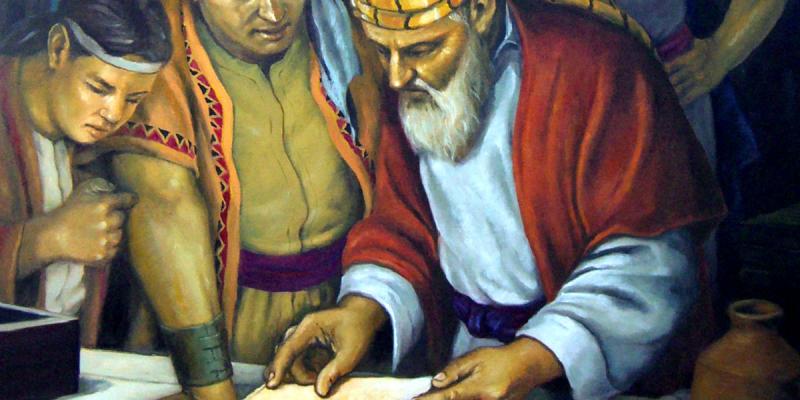You are here
Book of Mormon Central is in the process of migrating to our new Scripture Central website.
We ask for your patience during this transition. Over the coming weeks, all pages of bookofmormoncentral.org will be redirected to their corresponding page on scripturecentral.org, resulting in minimal disruption.
In 1 Nephi 5:14–16, Nephi said that Lehi “found upon the plates of brass a genealogy of his fathers; wherefore he knew that he was a descendant of Joseph.” Some have wondered how Lehi, a faithful Israelite, could not have previously known this.1
Lehi’s ancestors (from the tribe of Manasseh) were likely refugees who had fled from the Northern Kingdom during or prior to the destruction of Israel by the Assyrians. As refugees they may not have been able to bring records with them, even if they had once had them. They may have had a general knowledge of their northern ancestry through oral tradition, but may have been unable to prove this or know it in full detail running all the way back Joseph, about ten centuries earlier. After Lehi and his sons obtained the plates of brass, they had proof of what they had previously only believed from oral tradition, hence Lehi then “knew that he was a descendant of Joseph” through Manasseh and could prove his important status as such (1 Nephi 6:2; Alma 10:3).
- 1. “We have now to notice the ridiculous statement that Lehi did not know ‘the genealogy of his fathers’ till he had the plates from Laban. That is, he actually did not know what tribe he was of, although he was a married man with a grown up family. Now to fully understand the nonsense of this, we must bear in mind that every head of a family, except the tribe of Levi, had an estate given to him by Joshua, which land could not be sold. If there had been nothing else therefore to tell him, the very possession of this estate was public proof, as plain as the sun at noon day, of the tribe to which he belonged; besides which we know there was nothing about which a Jew was more particular than his genealogy, which was kept in public registers, down to the time of Christ. If Lehi and his children did not know they were descendants of Joseph, we must also assume that when he married, his wife’s family did not know the tribe of their new relative, and that in their intercourse with other Jews, they had never heard of it. Why it is just as impossible as for a man who is walking every day to be ignorant that he has the use of his legs.” Anonymous, A Few Plain Words about Mormonism (Bristol: Steam Press, 1852), 6–7.
Further Reading
Jeffrey R. Chadwick, “Lehi’s House at Jerusalem and the Land of His Inheritance,” in Glimpses of Lehi’s Jerusalem (Provo, UT: FARMS, 2004), 81–130.


